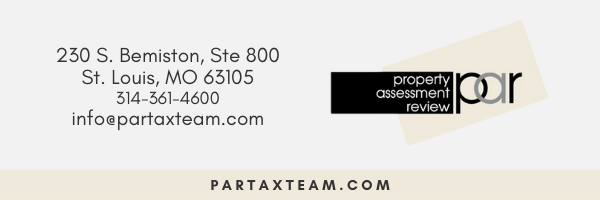What is a Discrimination/Ratio Appeal?
PAR has been leading the way in pursuing lower taxes for our clients through overvaluation appeals, but we also are the leaders in pursuing equity in tax assessment via discrimination appeals. Below is a brief explanation of the mechanics of a discrimination appeal to give you an understanding of what it is, and why we pursue it.
It is not uncommon to find that when a property sells, its sales price is much higher than the market value estimate the assessor has placed on the property. We often find that assessors will undervalue property by 15% or more.
The U.S. Constitution, Missouri statutes and Missouri court cases mandate that a property be assessed at the prevailing level of assessment, even when that level is below the market. As a part of our process at each reassessment, PAR conducts a ‘ratio study’ to look at the ratio of sale prices to assessor’s values throughout the county.
As a result of this study we can determine if the assessor is valuing properties consistently. When our ratio study shows that assessments are significantly lower than market values as indicated by sales, we file appeals based on discrimination.
Under assessing a population of properties is discriminatory because it places an undue burden on properties that are appraised above, at, or near their fair market value by the assessor.
In this scenario a
typical $1M property is valued by the assessor at $850,000. If you purchased a property for $1M that the assessor had valued at $1.5M you would appeal based on overvaluation. You would expect that the valuation would be lowered to $1M as a result of that appeal, and you would likely be satisfied with that outcome. Based on the prevailing level of assessment however, $1M properties should be valued at $850,000. A successful discrimination appeal would result in a further reduction to $850,000 to match the prevailing level of assessment and ensure fair taxation.

